“If I didn’t see those stories onstage, maybe I should tell them?”: An interview with Out of Sorts playwright Danusia Samal
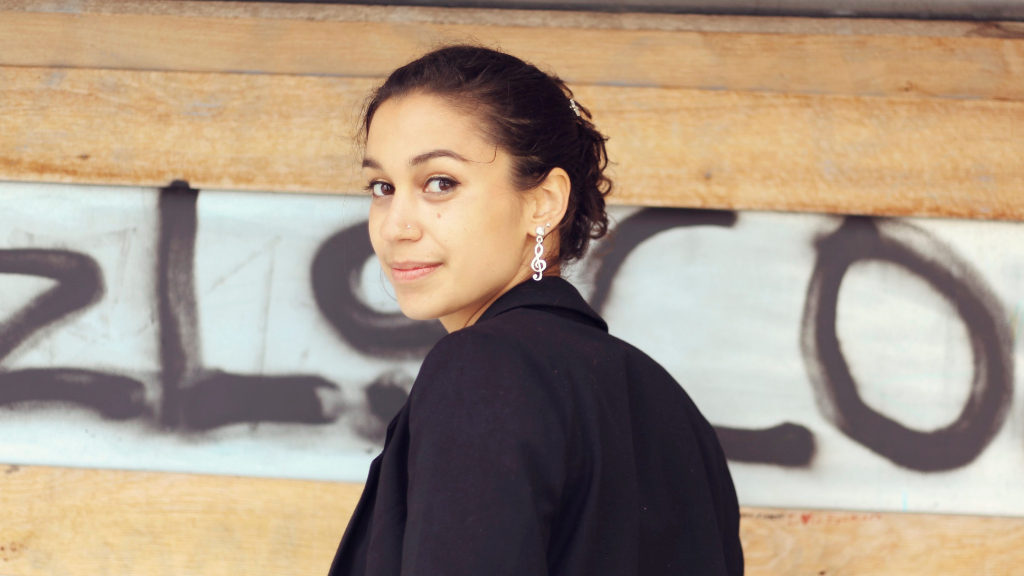
Danusia Samal is a dramatist, actress and singer, winner of the Theatre503 International Playwriting Award for her intriguing new piece Out of Sorts. One of 13 writers on the BBC’s prestigious TV Drama Writers’ Programme, she trained at the BRIT School and the Central School of Speech and Drama and is an alumnus of BBC London Voices, Tamasha Playwrights and SOHO Writer’s Lab. She has worked with the Royal Shakespeare Company, The Royal Court, Shakespeare’s Globe, Soho Theatre, and Manchester Exchange. Her other writing credits include Decolonising History, Busking It, The Museum, Langthorne Stories, Las Americas Above, and Conditionally.
As a TV and film actor Samal is featured in Tyrant, Ghost in the Shell, My Friend the Polish Girl and The Great. A singer and songwriter – her EP, Let’s do It, was co-produced with guitarist Ed Gaughan – she has composed for theatre, authors her own music, and co-authors rap, electro, R&B and hip-hop music in collaboration with other artists.
We caught up with Samal to discuss Out of Sorts and her artistic background and inspiration.
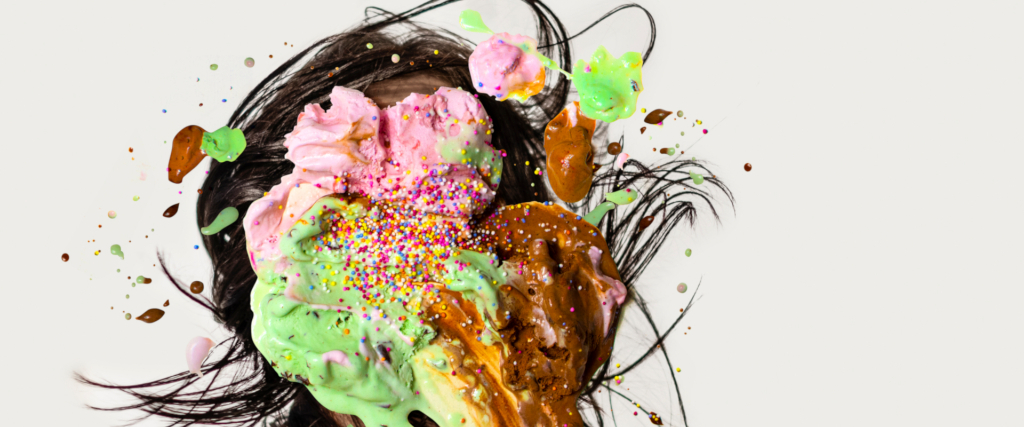
© Theatre503
What initially inspired you to write Out of Sorts? How did the idea originate?
I started writing some form of the play around 2011. I was graduating drama school and beginning to see more shows. I had always found the absence of diverse voices and the exclusiveness of theatre frustrating – that it felt designed for a certain class/race/gender/age and I was excluded. But now going into it as an actor it was even more alienating. I had always written – stories, songs, poems, plays. But now I began to take it more seriously. If I didn’t see those stories onstage, maybe I should try my hand at telling them?
Your principal character Zara is a young woman trying to juggle her identity as a conservative Muslim daughter with that of a modern liberated Londoner. In the case of contrasting cultures, the adjustment must be challenging. Reconciling the two rather than choosing one or the other would likely be bewildering, especially for a young person coming of age. Is Zara’s predicament unique or does she represent many?
I wouldn’t call it bewildering, but it’s an identity struggle you spend your life negotiating. I think the play looks at that and comes to [the] realisation that there is no clear answer. We are all a mix of things. What I’ve found interesting is I’ve chatted with lots of different groups and found [that] people relate to Zara’s struggle, no matter what their cultural background.
Are there elements of yourself in Zara? How much does her situation mirror your own experiences?
Out of Sorts started out as quite a personal exploration of my relationship with my family. Like Zara, I had a lot of prejudices. I was beginning to acknowledge them. I was feeling that after three years of drama school, I had betrayed some parts of myself. I was also growing up, and coming to terms with these questions was a big part of that. But as the play developed, I took a few creative steps to distance it from my own experiences. Some things remain, but most of the play is fictional. I’ve found this before, when you write from experience – at some point you have to step away in order to tell a stronger story.
What do you hope Out of Sorts will convey to the audience?
That identity is nuanced, ever-changing, and never easy to answer – but that’s ok! I want audiences to be able to identify with one or more of the characters and say: “That’s me. That’s how I feel, and I’ve never gotten to see it onstage.”
Tell us about your choice of Tanuja Amarasuriya as director.
Tanuja was incredibly eloquent about the play and had exciting ideas and thoughts on it. We worked together on rewrites and her notes were always bang on. I have loved watching her work in the rehearsal room – she’s so intricate and perceptive and she’s helped give every character a rich inner life. I’m in awe of her and it’s such a treat to know you trust your director totally.
How do you incorporate humour into your narratives? How important is it?
I love a joke, the sillier the better! I’m interested in exploring complex themes in my writing, and I think that works best with an element of humour. In my family, we show love by teasing each other – that probably works its way into my writing! The script used to have a lot of bad fart jokes in – thankfully I was gently guided to remove them!
In an article (for the Guardian) you said, “I didn’t really feel like a minority until I became an actor.” Despite London’s diversity, is there is an underlying alienation from what that means? Is “diversity” more a chic buzzword than an ingrained reality for some?
It’s kind of crazy that we live in such a mixed society and TV and theatre here still cast “white” as default and everything else as “other”. But that’s not the only issue. The arts only change when there is diversity amongst those making the decisions. I’ve often auditioned for things that are trying to represent a rarely seen community, but nobody on the writing or creative team has any first-hand knowledge of it. This can lead to ill-researched, clunky projects that don’t do the community justice. Unfortunately, I think people sometimes clumsily use the word ‘diversity’ as a code word for “brown people”. I don’t think that’s what it should mean. Theatre is at its best when it is truly diverse, representing a range of experiences, cultures, genders, and class. People are keen to find quick solutions and not make anyone uncomfortable, when actually this is a long, confusing, sprawling debate with no clear answers.
You are of Kurdish and Polish heritage and have described how people tend to ask where you’re from, even though you are London-born. Do you think it would benefit us to remove nationality and race from the conversation?
No! We should keep talking about it! All the time!
In what ways does your experience as an actor and/or singer influence you as a writer or vice versa?
They work side by side and simultaneously. When I feel stifled or silenced as a performer, I write. When I’m bored of sitting in front of a laptop, getting into a rehearsal room and playing is joy. I find that rehearsing another writer’s work informs my own. You learn a lot about writing from rehearsing a play and I really enjoy it. I think sometimes we can be too prescribed about assigning job titles in the UK. Just like in Out of Sorts, I don’t think you have to choose to be one thing. Lots of people are creative in multiple ways.
Your show Busking It was derived from your experience of busking in the London Underground. You have an amazing voice. Describe the evolution of your jazz singing and songwriting career.
Thanks! My mum is one of seven sisters and they all love singing so I grew up round it. My big brother always played soul and jazz classics and I grew up mimicking Ella Fitzgerald, Nina Simone, Anita Baker and Lauryn Hill. I then attended the BRIT school where I started having singing lessons. I later did grade 8 pop vocals and then a diploma in singing teaching. Age 18, I auditioned for a busking licence and started singing on the London Underground. I loved it. Almost every gig or musical collaboration I’ve done has sprung from busking. I met interesting people, grew in confidence, and learned about music’s power to uplift and connect us in ways no other art form can. At the moment my music career has slightly stalled with all the writing! But if anyone wants to offer me a gig…
Do you think theatre as a medium has the power to change us? Can the arts save the world?
I was at an event the other night where Fin Kennedy from Tamasha [Playwrights] summed this up beautifully: Theatre can’t change the world, but it can change people. And people can bring about change. I really believe that. I still remember the first time I saw a show that changed me.
What’s next? Do you have plans for future projects you’d like to share with us?
I’m writing a fair bit for TV at the moment. I’m one of 13 writers on the BBC’s TV Drama Writers’ programme. I’m also filming on a brilliant TV series for Hulu, called The Great, where I play Lady Svenska, bitchy lady of the Russian court. It’s really good fun. … Also hoping that after this interview, someone offers me a record contract!
Thanks so much for chatting with us, Danusia.
Catherine Sedgwick
Featured photo: © Danusia Samal
Out of Sorts is at Theatre503 from 9th October to 2nd November 2019. For more information or to book tickets, visit the theatre’s website here.
Watch Samal and director Tanuja Amarasuriya talking about Out of Sorts here:

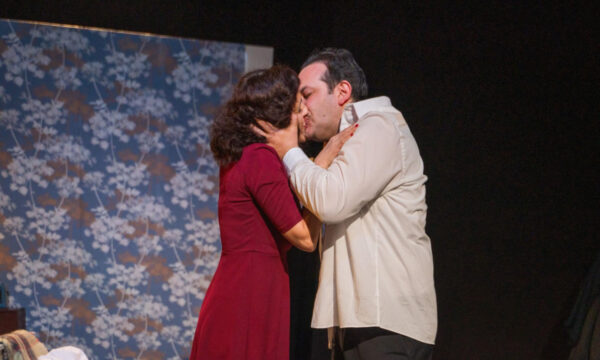
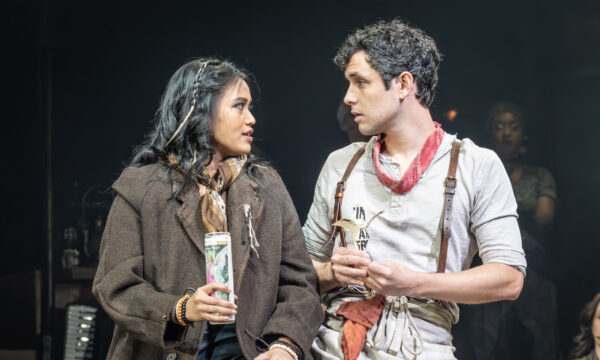
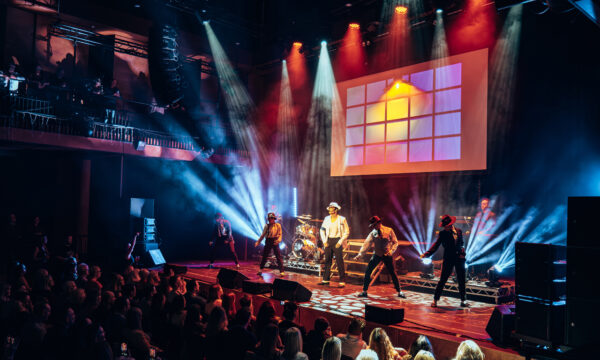
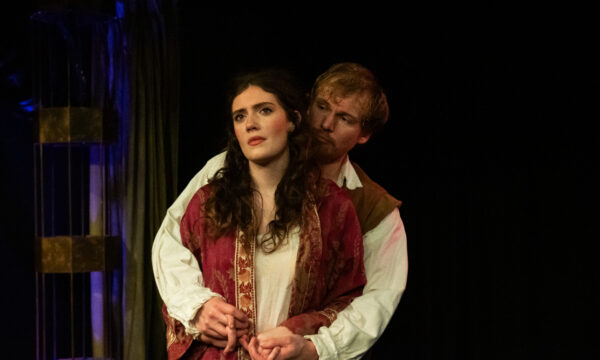
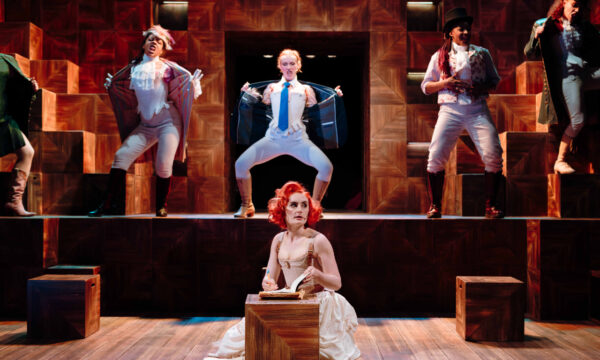
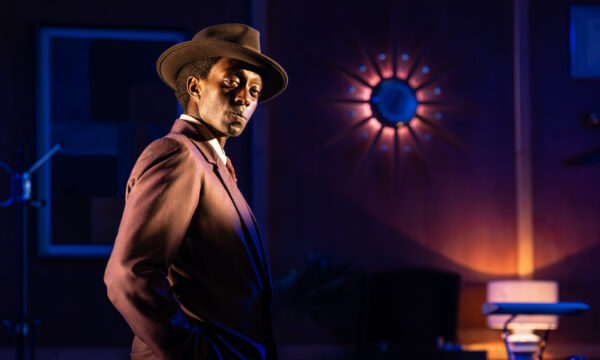
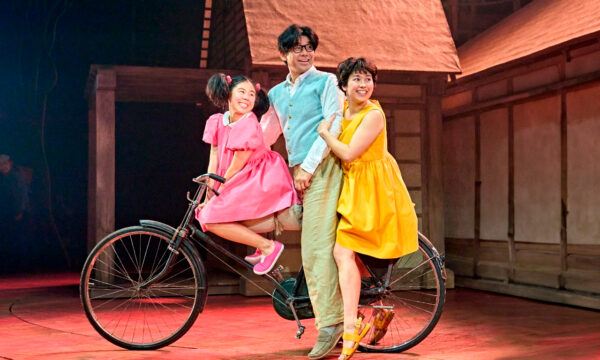

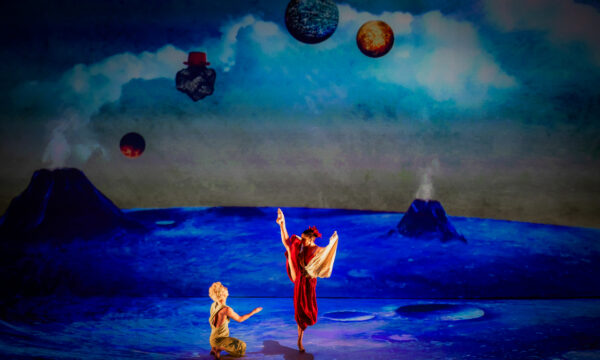











Facebook
Twitter
Instagram
YouTube
RSS